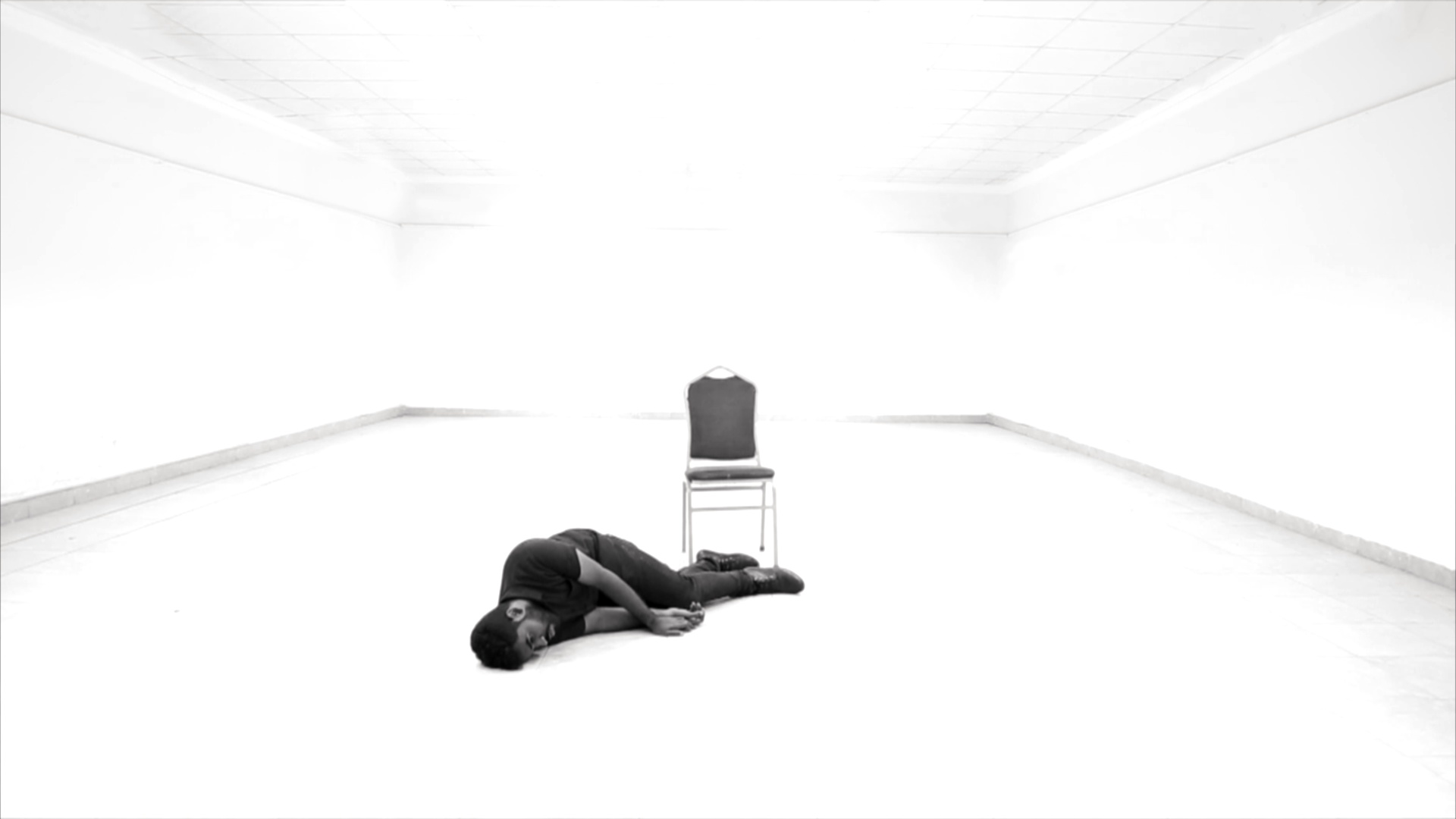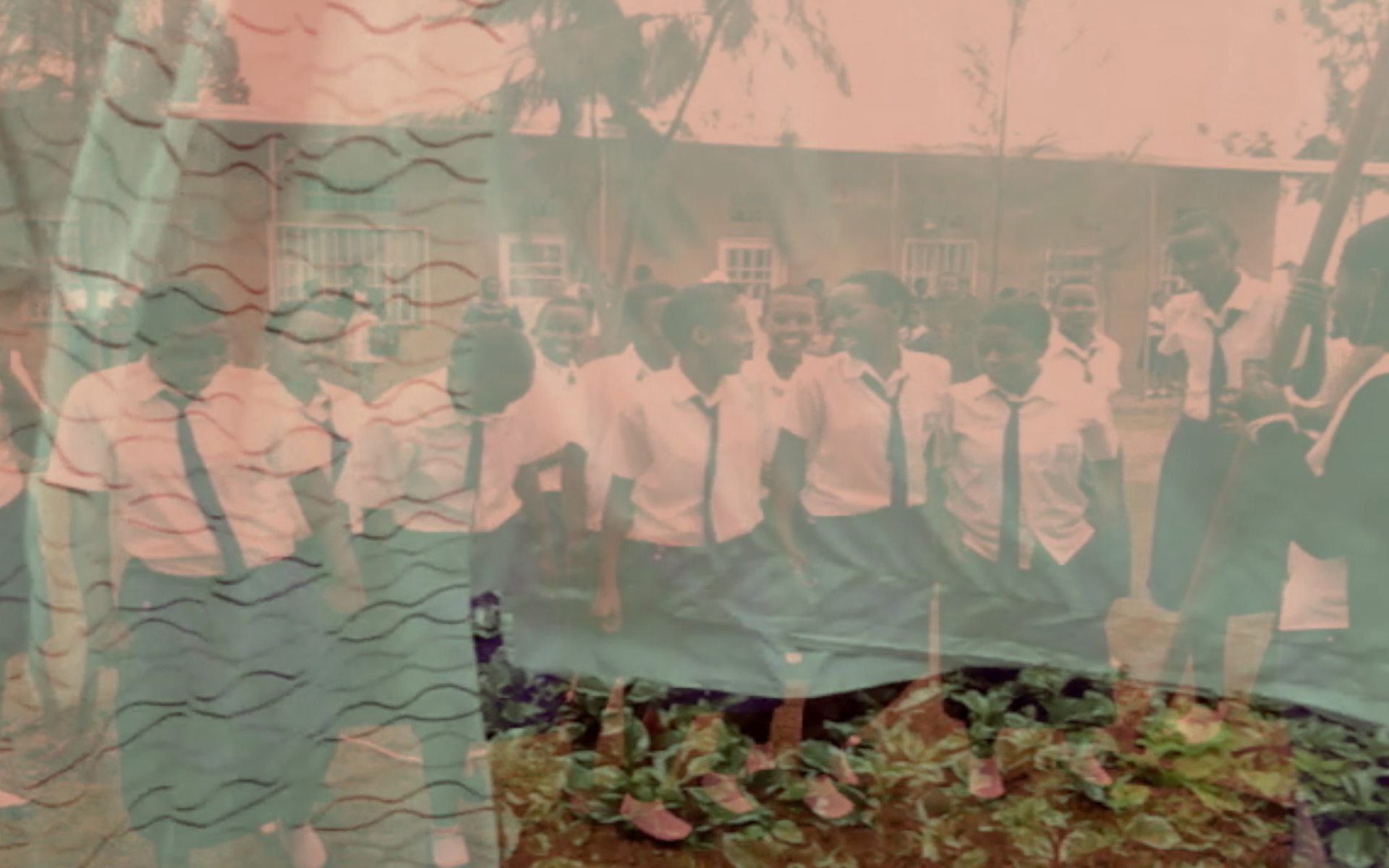UNITED SCREENS: On Cinema Beyond The Borders Of The Screen
Within the framework of Edit Film Culture!, UNITED SCREENS opens its first chapter of a long term research including exhibitions, symposia, interviews etc to observe divergent film cultures and to enquire into the possibility of a decentralised ecosystem for cinema and film distribution powered by technology.
Opening 05.07.2018 19:00
Opening Hours 06.–22.07.2018
Monday–Friday 14:00–19:00 Saturday & Sunday 11:00–19:00
Due to preparations for an event on 19.07.2018 we will have to close the exhibition earlier at 18:00. We apologize for any inconvenience.
Invocations 20. & 22.07.2018
CURATOR Abhishek Nilamber
ASSOCIATE CURATOR Kamila Mohamed Metwaly
ARTISTIC DIRECTORS Antonia Alampi and Bonaventure Soh Bejeng Ndikung
COMMUNICATIONS Anna Jäger
GRAPHIC DESIGN Elsa Westreicher
MANAGEMENT Lema Sikod
EDITING Bona Bell and Laura Klöckner
ANNOTATIONS Karen Wong, Kelly Krugman, Beya Othmani, Jasmina Al-Qaisi, Raisa Galofre and António Pedro Mendes
INVOCATIONS CURATION Pia Chakraverti-Wuerthwein, Elena Quintarelli and Laura Klöckner
MINDMAP ASSISTANCE Trishla Talera
ART HANDLING Mungai Wilson, Kimani Joseph, Clemens Leuschner, Behram Sidhwa
TECH Bert Günther
LIVE STREAM Boiling Head Media
FADE IN: LANDSCAPE/S-SPACE/S
EGYPT, 2016 Egyptian filmmaker Tamer El Said's internationally acclaimed film In The Last Days of the City has never been screened in Egypt. Even though the Egyptian government never officially banned the film, it didn’t receive a screening permit which is "a way to ban the film without announcing it publically" as described by the director in the Guardian article titled The Cinematic Love Letter to Cairo that None of its Residents Will See (Ruth Michaelson).
MAURITANIA, 1970 Med Hondo's critical film on the stretching of colonial imperialism and its ongoing embedding into the contemporary today, Soleil Ô (Oh Sun!) was banned for several years upon its release from screening across many African countries. "Whether I make a film in Paris or Nouakchott, it is pretty obvious that my country will not see it. Over the long terms the situation becomes a latent suicide", Hondo articulates in his groundbreaking work The Cinema of Exile.
FADE IN: FUNDS
IRAN, 2018 An Iranian cinematic source, who goes by the alias Pouya and has a history of collaborating with Owj, told Al-Monitor, “everyone knows that Owj is funded by the IRGC. The IRGC gets its budget from the government. The nature of this funding is no different from what is given to other organizations for producing films. The reality is that Iran’s cinema is ultimately a government-owned business.”
INDIA, 2018 During his visit to India, Israeli Prime Minister Benjamin Netanyahu chose to mark his last evening in the country with a special event for the Indian film industry establishment. "Bollywood Shalom" was held in Mumbai and Bollywood, stars like Amitabh Bachchan and Aishwarya Rai were in attendance. It ended with an Oscar-style selfie and Netanyahu's declaration: "We want Bollywood in Israel. We are putting our money where our mouth is."
GERMANY, 2015 The applicant for production funding should typically furnish a producers’ contribution of 50% of the German financing share. Exceptions can be made particularly for projects with a content or style that exposes their economic exploitation to a high degree of risk.
CUT TO WIDE SHOT: INFRINGEMENT
UNITED STATES OF AMERICA, 1964 In an interview in 2001, Jonas Mekas expressed his attempts to engage with the process of "distribution/dissemination system" of films that - as he describes - seemed to be uninteresting for known and commercial distribution platforms, at the time, in the USA. His various attempts of putting Jean Genet's “Un Chant d'Amour” (1950) and Jack Smith's “Flaming Creatures” into the market caused the arrest of the filmmaker based on obscenity charges.
French-colonized Africa, 1934 ‘La Décret Laval’ was issued under the purview of the minister of colonies; Pierre Laval, to control the content of films that were shot in Africa, and to minimize the creative roles played by Africans in making of films.
MATCH CUT: AESTHETICS
INDIA, 1979 “If we have gathered here to discuss the role of cinema in developing countries, I think it would be right for us to discuss why these directors face these identical problems. It is because, I think, many governments would be very happy if we talked about cinema only as an art form, as an aesthetic medium. They would not be so happy if we spoke about the strikes in our country and the troubles in our country. I personally do not see any purpose as a creator to use this aesthetic aspect to communicate with this minority of bourgeois people who are in our country.” - Ousmane Sembene, speaking at Symposium on Cinema in Developing Countries.
PAN TO: ARCHIVING
NIGERIA, 2014 Hundreds of rusted cans of films were found in the abandoned rooms of Nigeria’s old Colonial Film Unit in Lagos. This led to further discovery of 10000 cans of films in relatively good condition at the National Film, Video and Sound Archive at Jos.
GERMANY/ INDIA, 2009 pan.do/ra is developed by Pirate Cinema, Berlin in collaboration with CAMP, Mumbai. This online open media archive enables annotation, searching and editing of multimedia archives that led to further instances of pan.do/ra : pad.ma, indiancine.ma, bak.ma, 858.ma etc.
FADE IN: COLLECTIVITY
INDIA, 1984 Filmmaker John Abraham brings together Odessa Collective - an endeavor to collectivize cinema production and exhibition. Odessa Collective produced the film Amma Ariyan (Message to my Mother) in 1986, a film produced with crowdfunding efforts and was exhibited free of charge across the state of Kerala by Odessa Collective.
JUMP CUT: TECHNOLOGY
INDIA, 2007 According to CAMP, a critical art and media platform launched by Shaina Anand and Ashok Sukumaran, one of the key objectives of the platform were to "engage with questions, claims and potentials around infrastructure: materials, systems, and tools. This means working directly with such things as electricity, transport, trade, archives, video, radio and the internet; developing ways to think about these as integrated with human life, and beyond the "network" as its representative thought-model."
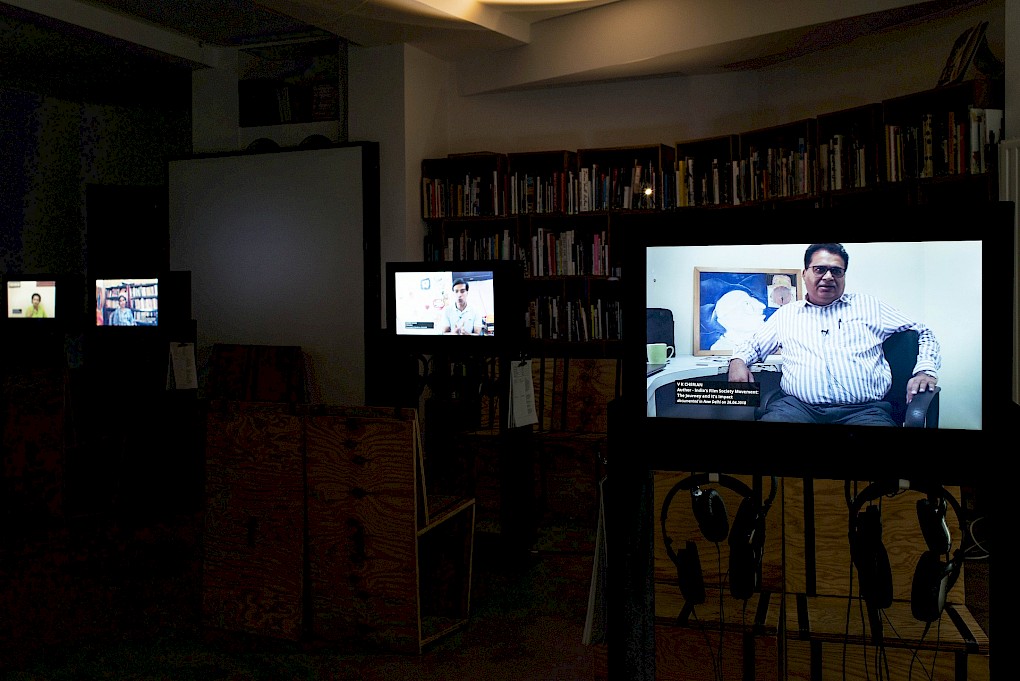
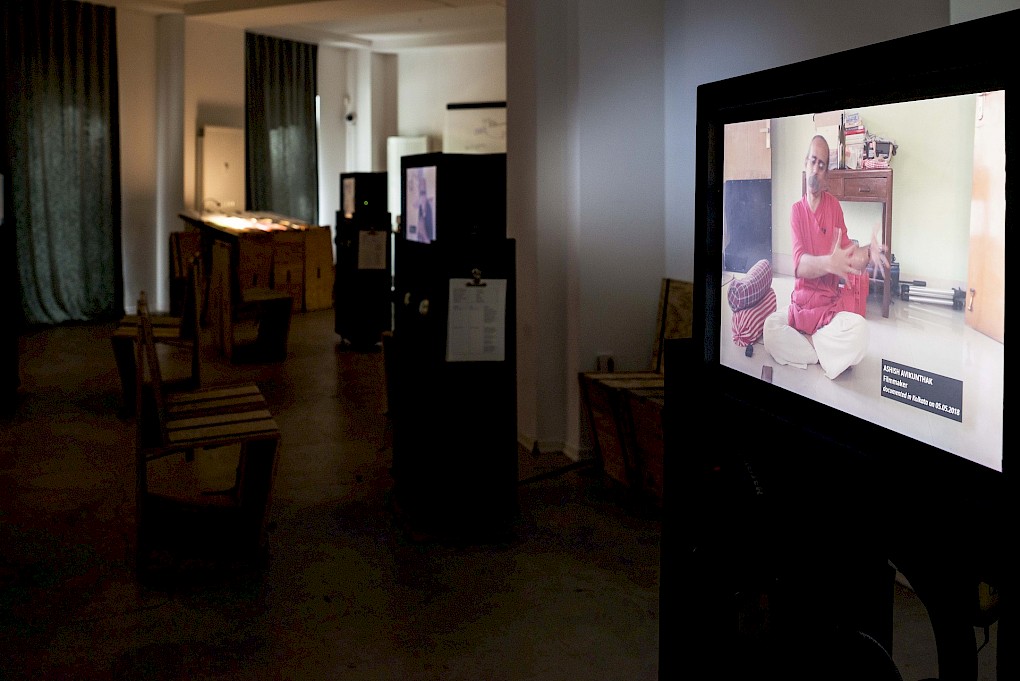
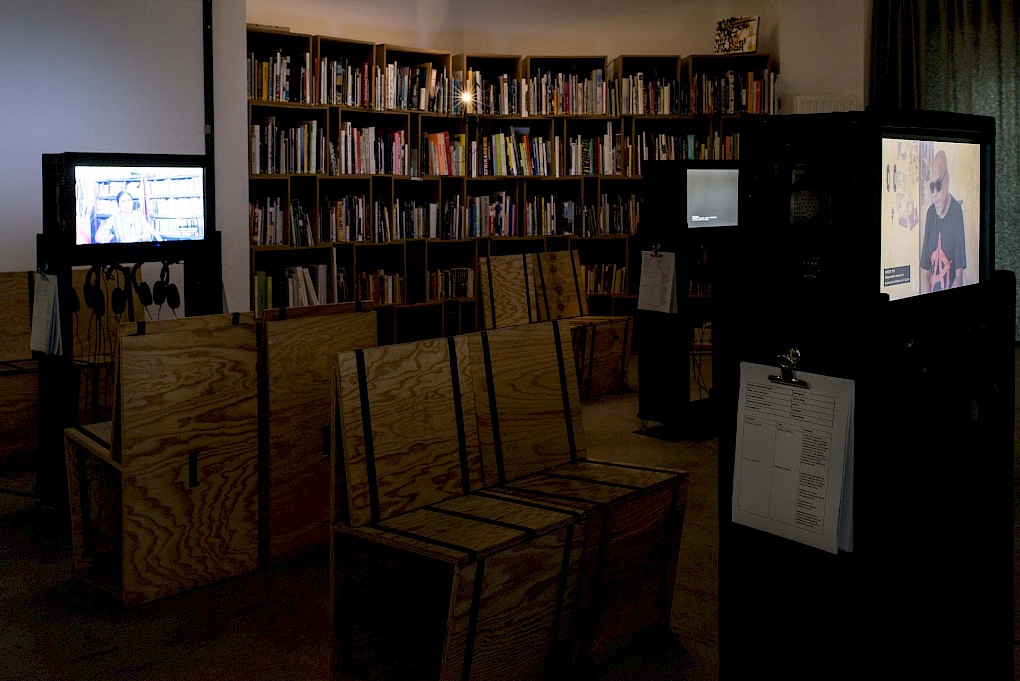
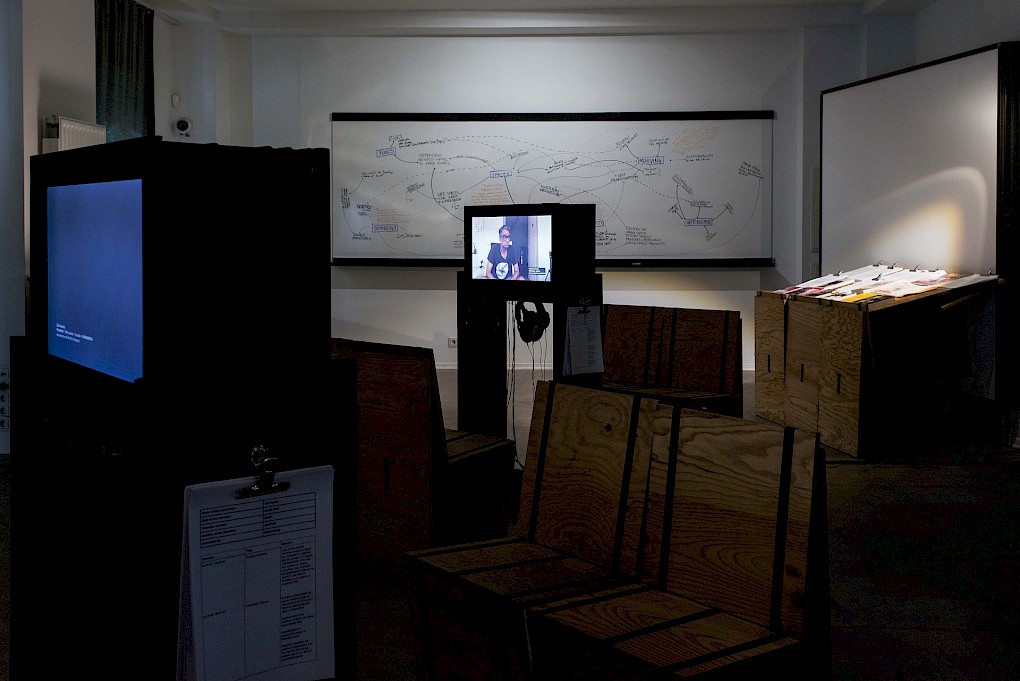
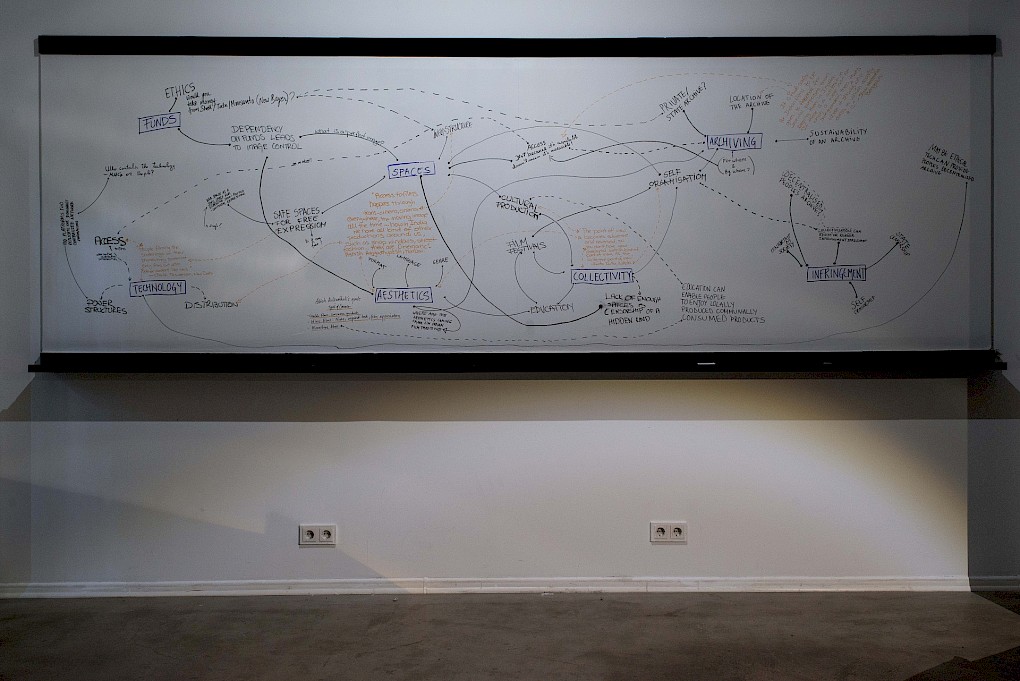
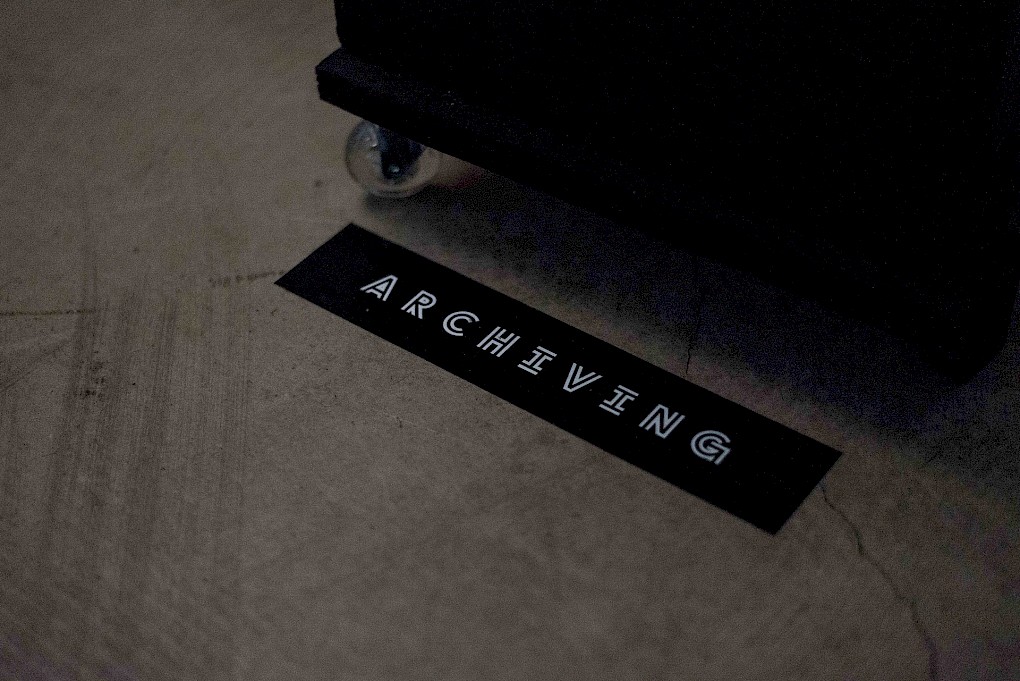
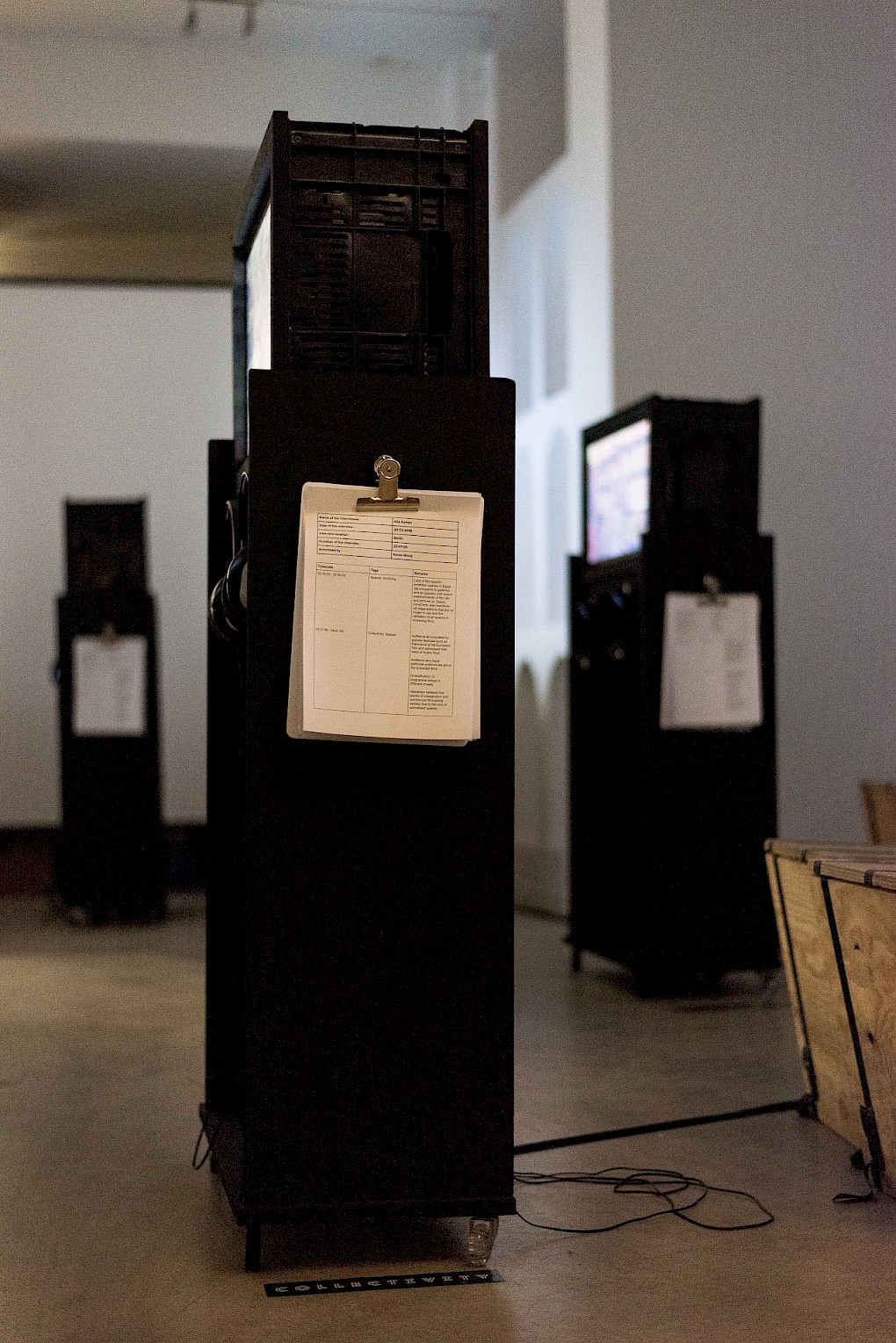
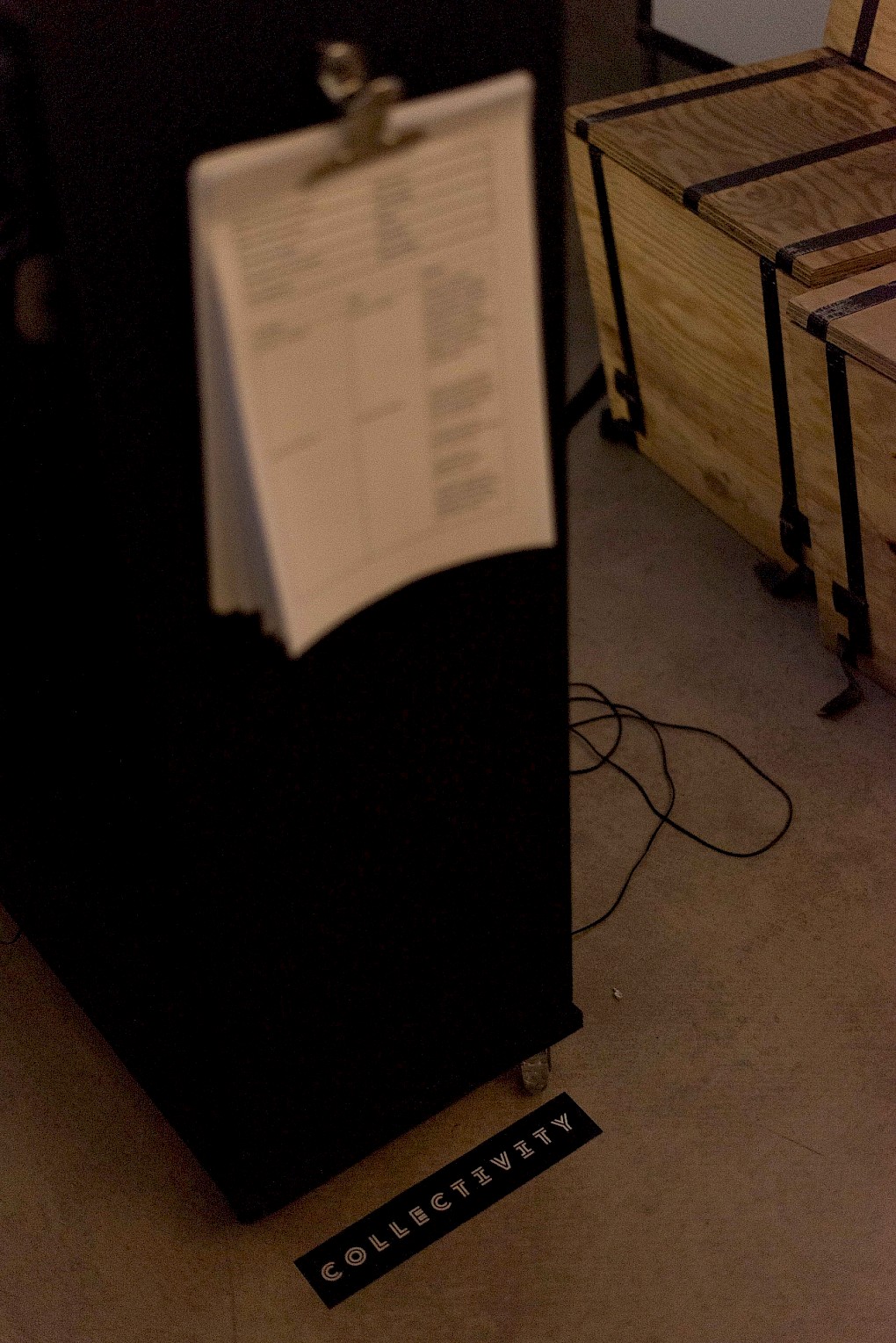

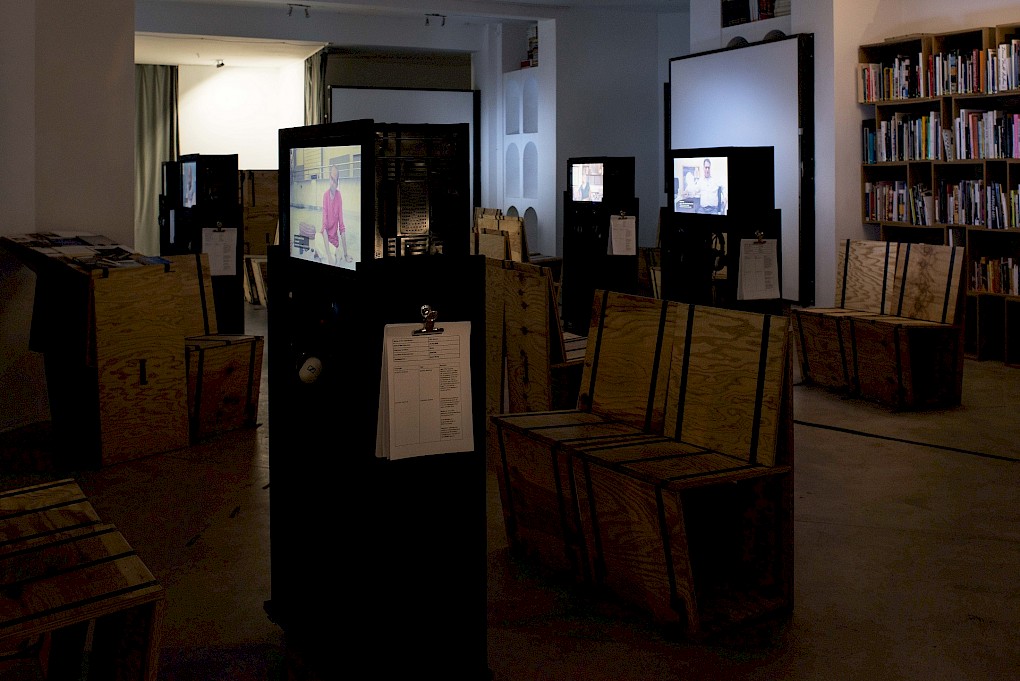
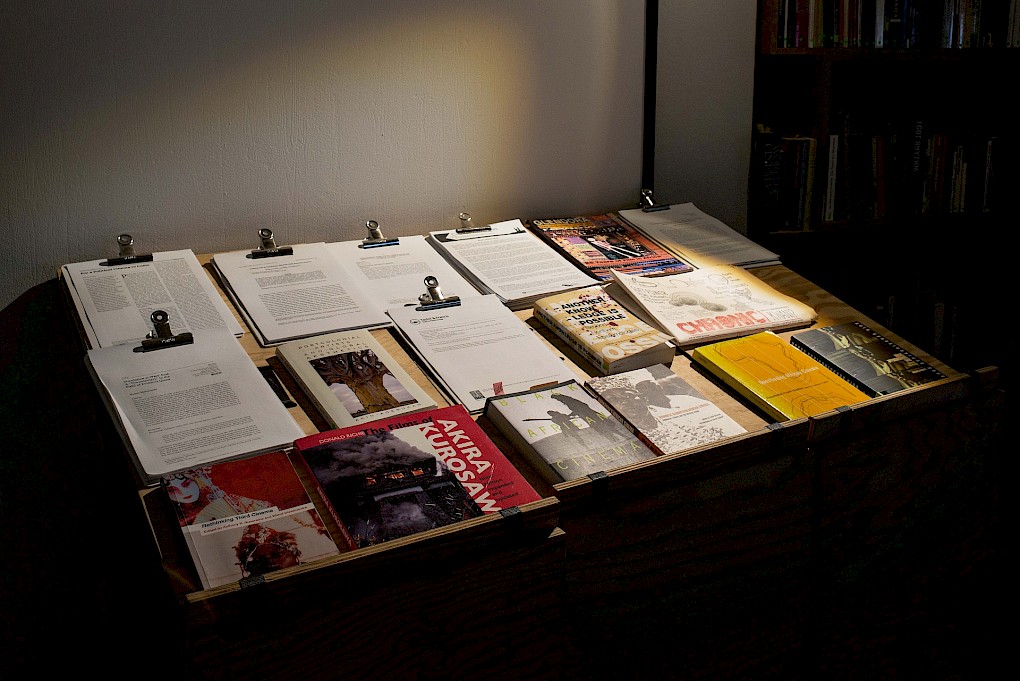
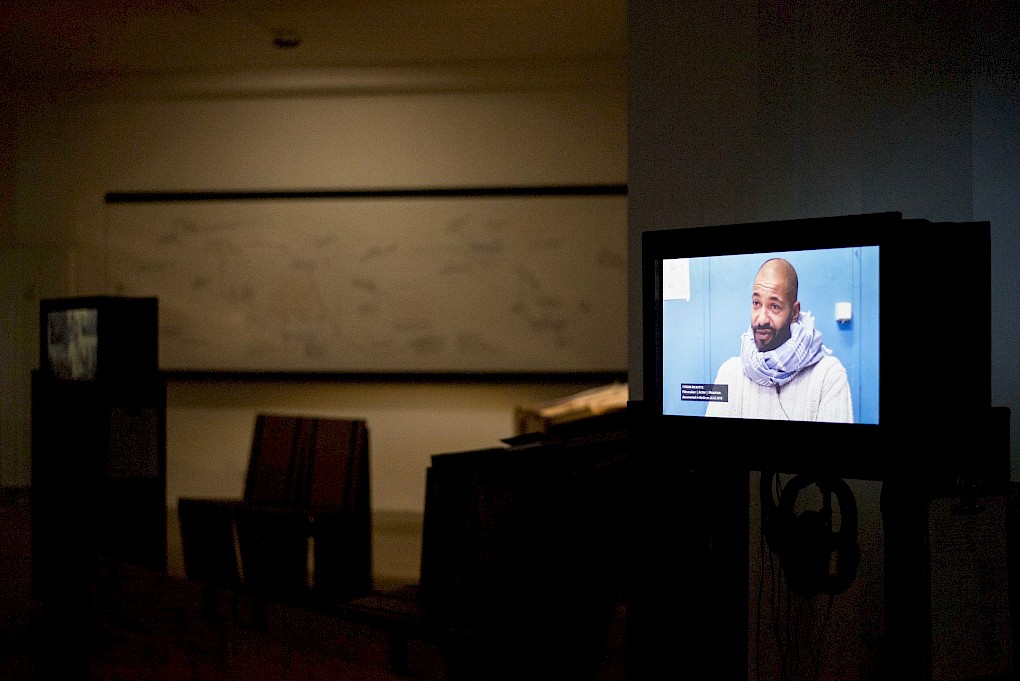
UNITED SCREENS is a long term research and exhibition project that intends to create a platform through which independent filmmakers, exhibitors and distributors can activate a network of co-ordinated and programmed exhibition spaces. In the future, we will propose a new platform to distribute films produced across the Indian subcontinent, African and Asian continent at large, Latin America and Eastern Europe.
We also look to the past to revisit efforts made and claims raised in the process of decolonizing forms of film distribution, in order to furthermore engage with the formation of decentralized distribution channels of film that exist beyond bodies of censorship, agencies of control and institutions in position of power.. We aim to understand postcolonial ties to current formats of film distribution because only with an historical register can we pave the path to a broader understanding of modes of censorship, state control of screens, and processes of othering through cinema. We hope that with this research project, we can collectively propose and form a more inclusive understanding of film distribution beyond its normative socio– and geopolitical contexts and barriers.
In this first chapter of our research, many curiosities materialised into friendships, and friendships flourished into camaraderies. These interactions within a growing network were collected as documented films, audio interviews and personal memories.
The exhibition invites you to take a walk through mapped research on parts of the Indian film ecosystem: experiencing select video-interviews, notes, as well as informal conversations. Out of this research we have distilled seven key-nodes towards the understanding of this ecosystem. They are: funds, aesthetics, infringement, archiving, spaces, collectivity and technology.
With this exhibition, we hope to engage the audience in a careful consideration on the evolution of divergent film cultures and reflect on a decentralised technology-based infrastructure for alternative cinema.
Finally, it is also important to point to the process of handling the collected interviews towards the exhibition and its archiving. The collective spirit of the SAVVY Contemporary team offered to watch each interview and add to it their own reflections through the annotations that accompany the exhibition. This collective process manifests itself in the following forms: annotation notes by SAVVY Contemporary team, mind-map representing relationalities between Cinema and Cinemas, specific to this phase of research which has been co-created with Trishla Talera, annotated online archive of the interviews hosted at pad.ma.
ON SCREENS INTERVIEWS WITH Abhas Abhinav (Bengaluru), Shai Heredia (Bengaluru), Rahul Jain, Alhaji Adedayo Thomas (Abuja), Burak Cevik (Istanbul), Tyron Ricketts (Berlin), Rinchin (Bhopal), Surya Shankar Dash (Bhubaneshwar), Chalti Tasveerein (interviews with members Amudhan R. P., Sameer Gardner, Aswathy Senan, New Delhi), Ritu Sarin (Dharamshala), Suraj Prasad Mahato & Anuj Malhotra (Delhi), V K Cherian (New Delhi), Q (Goa), Alankrita Anand (Goa), Sanal Kumar Sasidharan (Tiruvananthapuram), Vipin Vijay (Kottayam), Ashish Avikunthak (Kolkata), Kasturi Basu (West Bengal), Moinak Biswas (Kolkata), Subha Das Mollick (Kolkata), Rwita Dutta (Kolkata), Surojit Sen (Kolkata), Alankrata Shrivastava (Mumbai), Ashish Rajyadhyaksha (Bengaluru), Bardroy Barretto (Mumbai), Bikas Mishra (Mumbai), Mariam Ghani (New York), Prabodh Parikh (Mumbai), Sandeep Mohan (Mumbai), Gargi Harithakam (Kozhikode), Sunil Sukhtankar (Mumbai), Umesh Vinayak Kulkarni (Pune), and Harini Laxminarayan (Bengaluru).
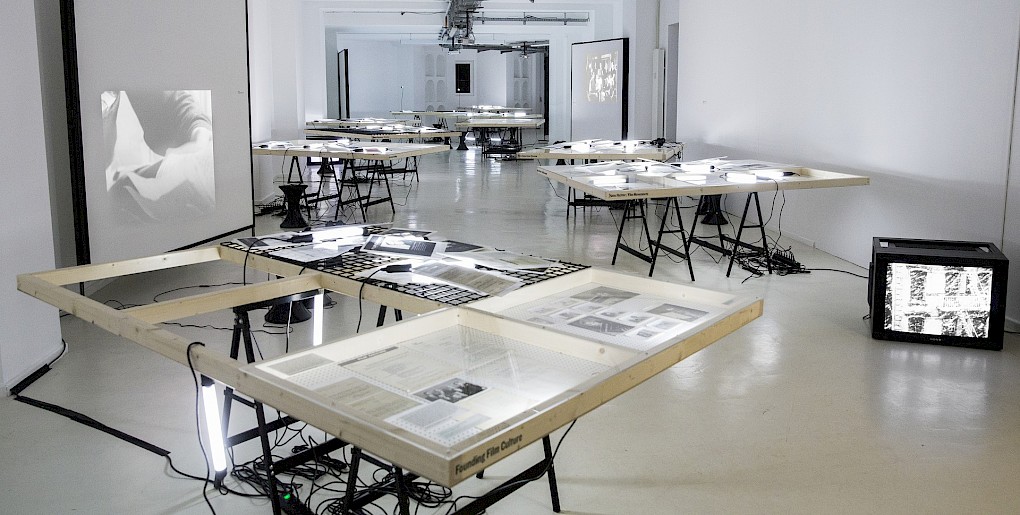
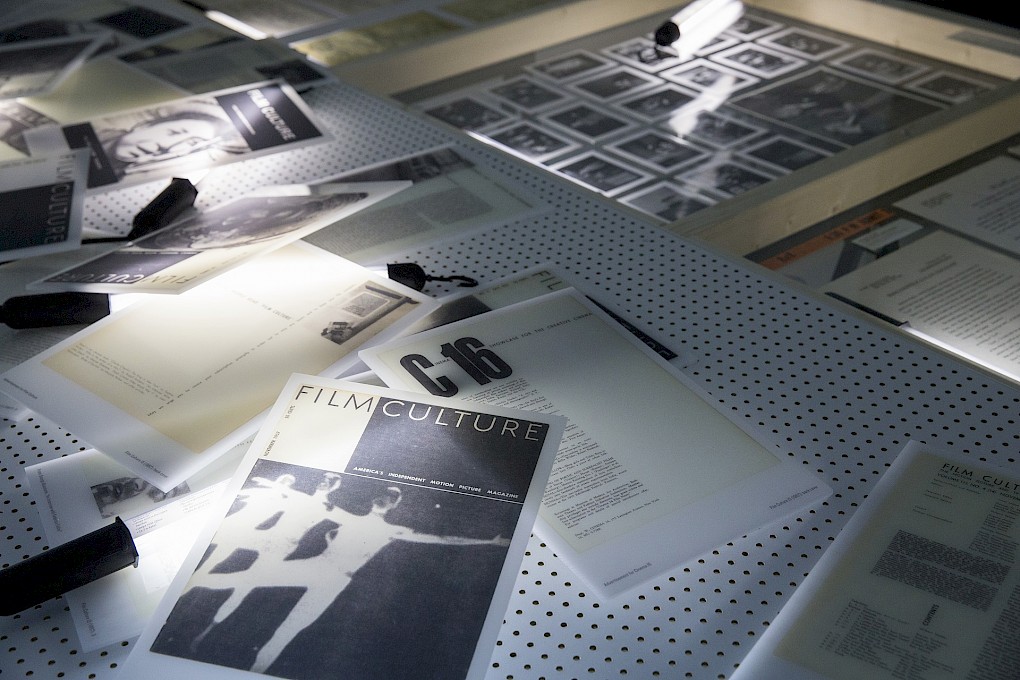
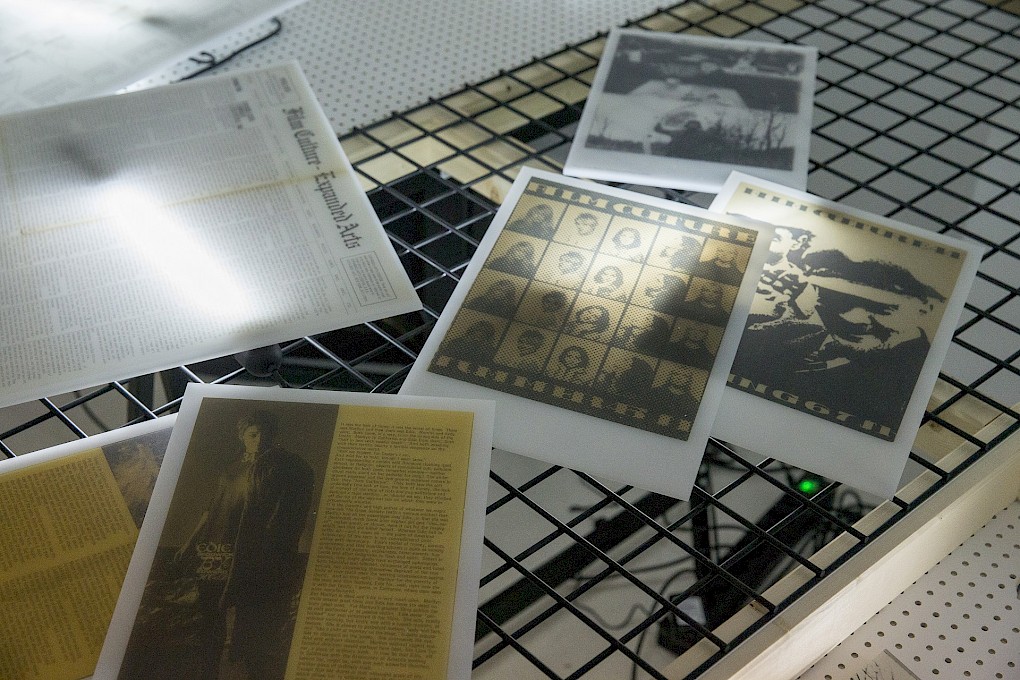
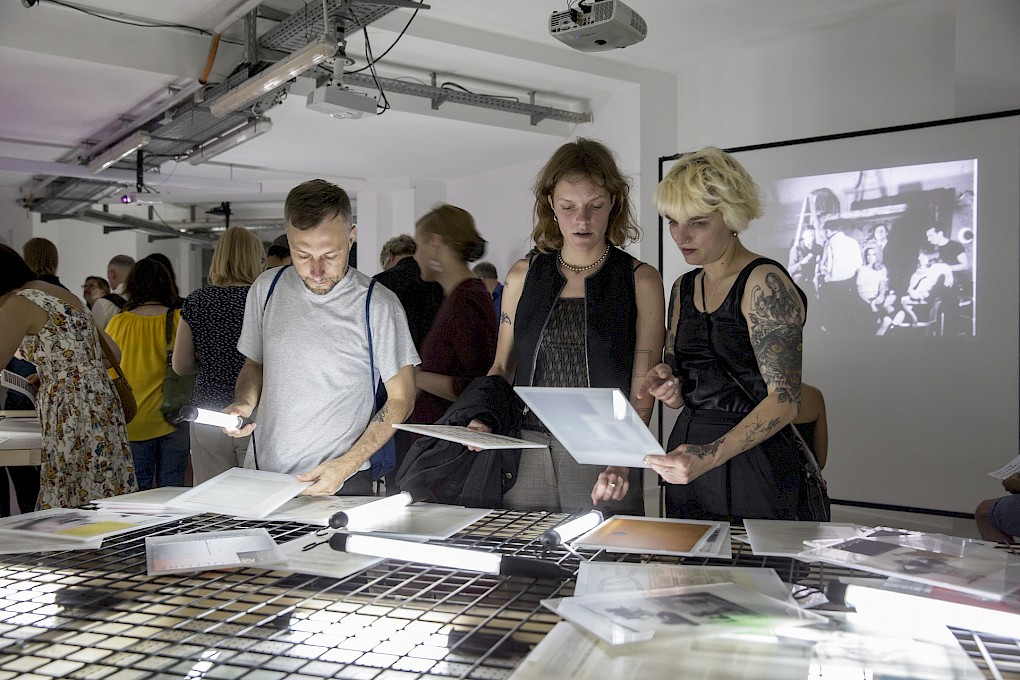
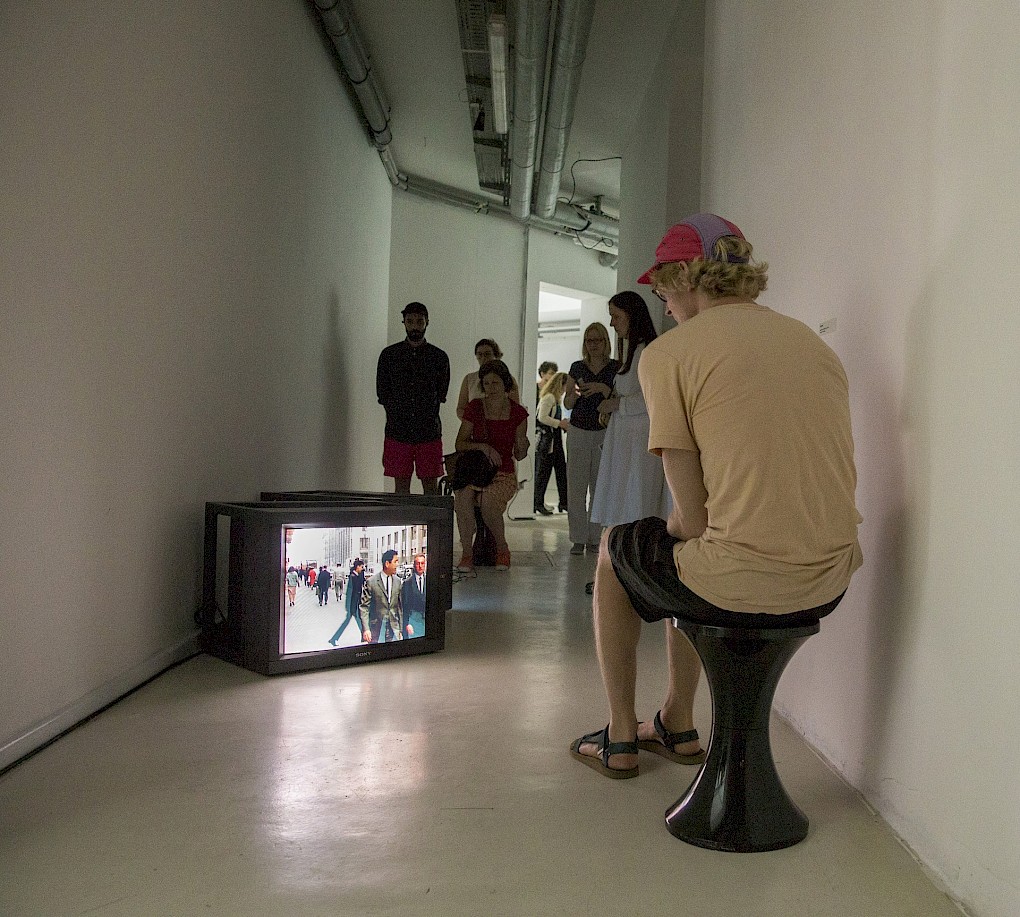
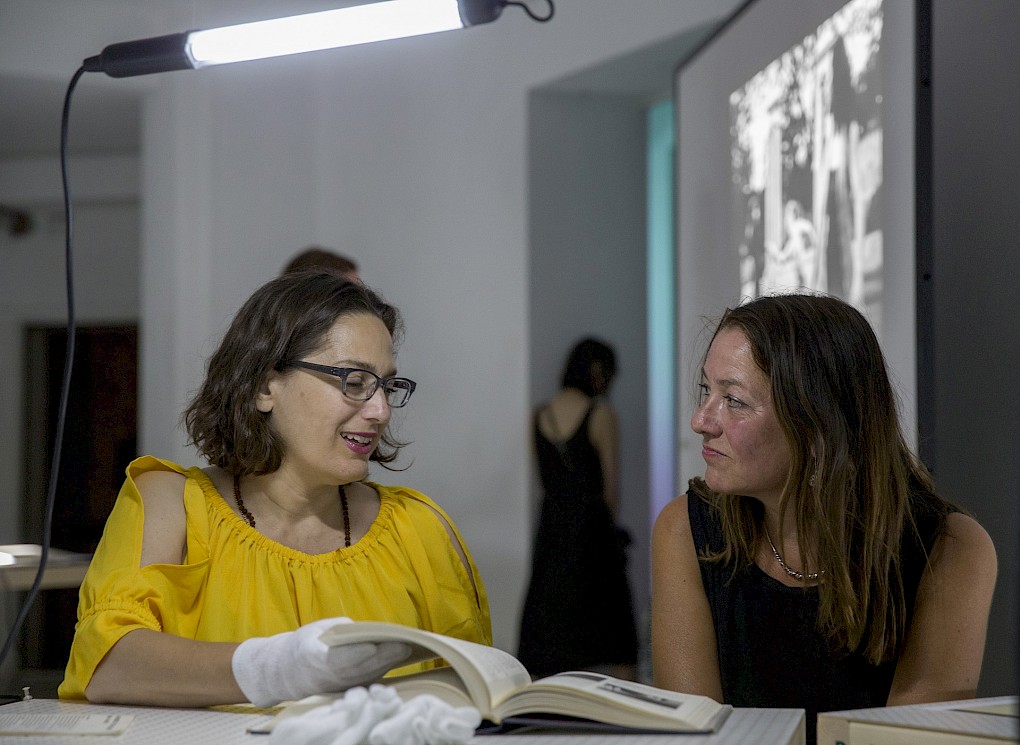
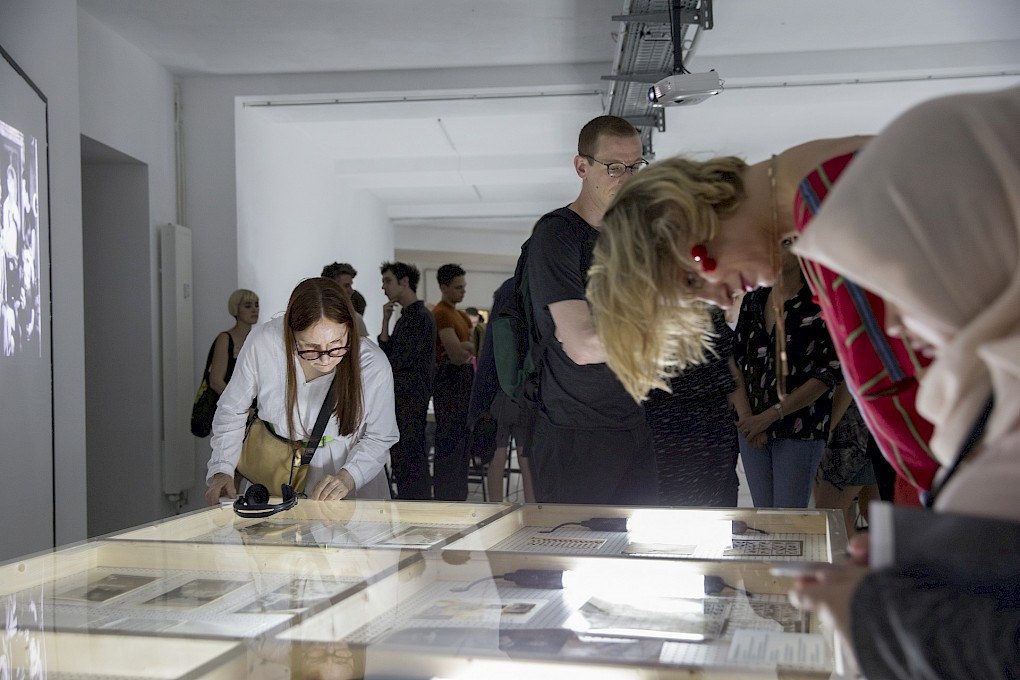
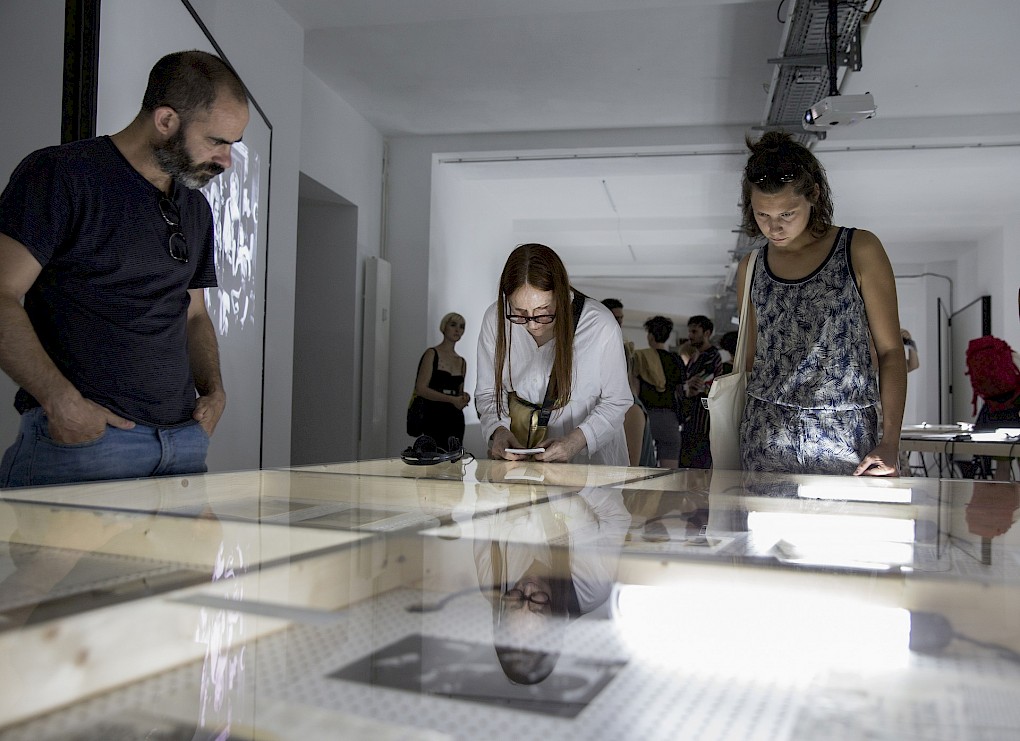
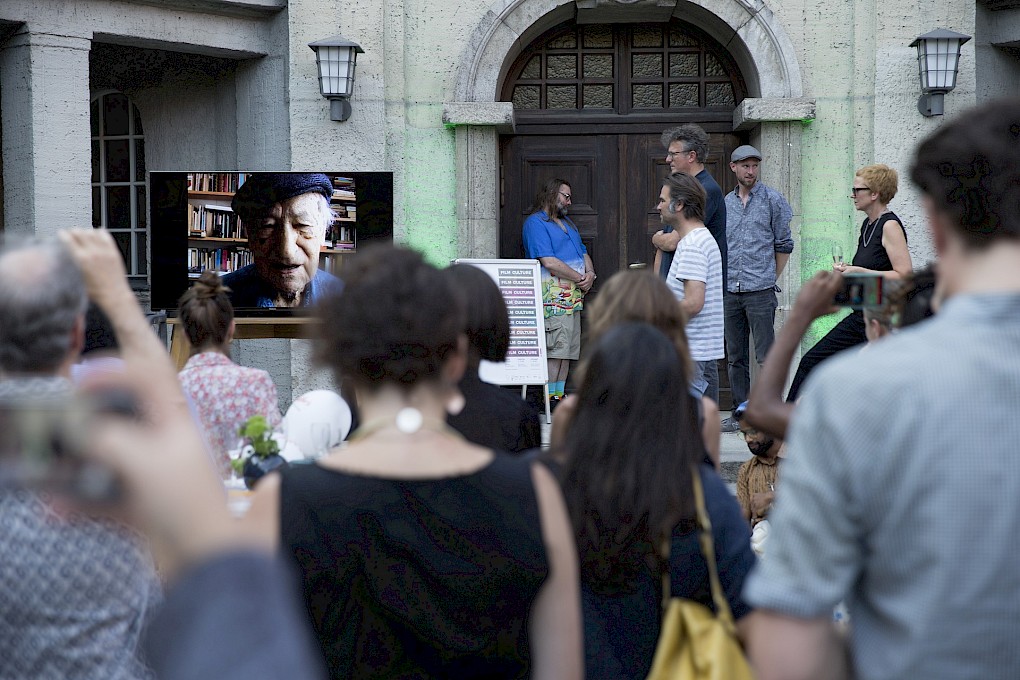
Edit Film Culture! is a project by silent green Film Feld Forschung gGmbH in cooperation with Jonas Mekas / Anthology Film Archives, Arsenal – Institut für Film und Videokunst e.V., SAVVY Contemporary e.V., Harun Farocki Institut, Spector Books and Lithuanian Culture Institute.
Funded by Hauptstadtkulturfonds and the Arab Fund for Arts and Culture. With the kind support of ifa––Institut für Auslandsbeziehungen and Jonas Mekas Visual Arts Centre, Vilnius.


